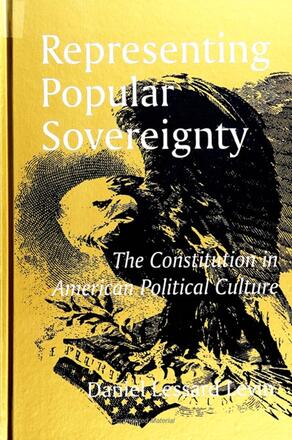
Representing Popular Sovereignty
The Constitution in American Political Culture
Alternative formats available from:
Explores the contradiction between the Constitution's importance as a political document with its weakness as a symbol in American popular culture.
Description
Using the events of the Constitution's Bicentennial from 1987 to 1991 as a case study, Representing Popular Sovereignty explores the contradiction between the Constitution's importance as a political document and its weakness as a symbol in American popular culture.
Daniel Lessard Levin is Assistant Professor of Political Science at Boise State University.
Reviews
"Many have remarked on the importance or lack of importance of the Constitution in American popular culture, but no one, to my knowledge, has examined that systematically. Levin does so, and in a manner that demonstrates his conversance with a broad range of literature. Levin also makes some sophisticated philosophic points accessible. This book fills a conspicuous gap in the literature on constitutional theory (in part because it speaks so directly to well-known works in that field). " — Anne Norton, University of Pennsylvania
"The author directly confronts an awkward fact of life: few Americans possess a substantial knowledge of the Constitution and, in terms of substance, not many citizens seem to mind the relative ignorance. Moreover, he rightly notes that the role of the Constitution in American consciousness will not ascend to a higher place until the constitutional tradition is integrated into the 'serious business of everyday politics. '" — David Gray Adler, Idaho State University